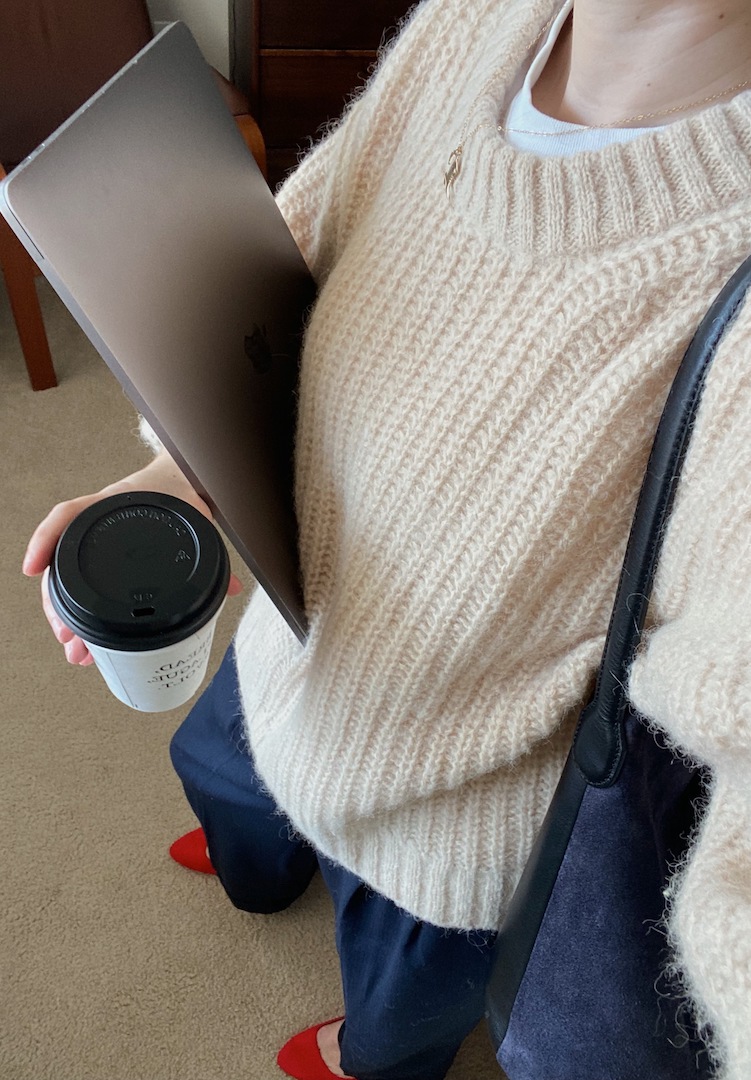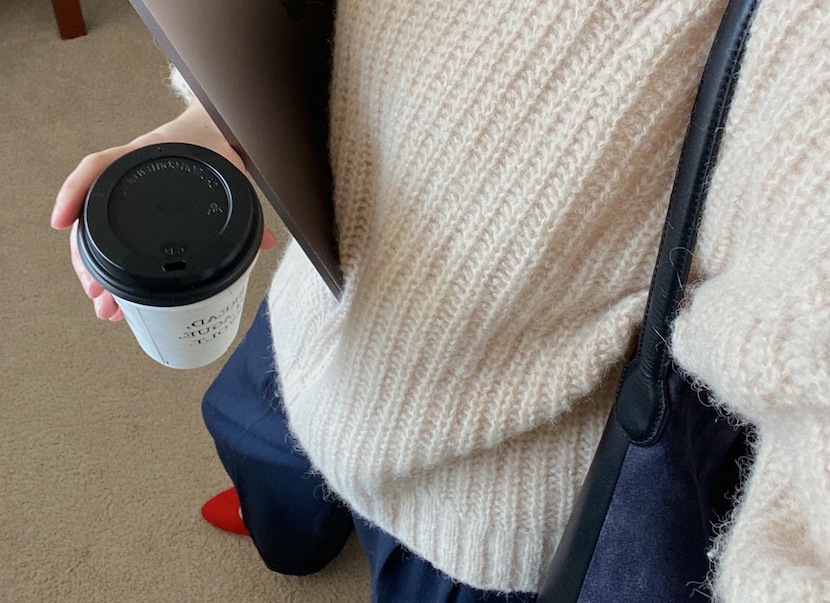I asked an executive career coach how to stop apologising at work
WORDS BY IZZY WIGHT
“There is a clear distinction between taking ownership of your actions and decisions and being overly responsible for other people’s behaviour.”
Most of us are going to spend a good portion of our lives at work (approximately one-third, to be more specific). I’ll be the first to admit that the finance-bro pep talks that come up as sponsored TikToks on my For You Page make me never, ever want to engage in career self-help content. But in saying that, with so much of our time dedicated to professional responsibilities, objective career advice probably isn’t a bad idea.
After 15 years working as an executive, Australian podcaster and executive careers coach Lara Nercessian wanted to dedicate her career to helping other women navigate the professional world with confidence and success. In the workplace, underlying weaknesses (and strengths!) tend to surface and for women in particular, this can bring up people-pleasing tendencies.
Looking for a new 9 to 5? Head to our Careers page for new listings daily.
“Underlying fears tend to be exacerbated as many individuals tie their self-worth to their job titles, salaries and performance at work,” Lara explains. “When it feels like there is a lot at stake and the pressure is high, these feelings of unworthiness can result in an incessant need to apologise.” If you’re struggling to stop the ‘I’m sorrys’, read on. Here, Lara speaks on how to stop apologising at work.
How did you become an executive career coach?
My journey really began when I first realised that I had an innate gift for helping others unlock their potential and see the greatness that I was able to see for them. I studied psychology at university for five years, however, I felt more called towards the business side, which ultimately led me to pursue a career in the field of human resources.
At the beginning of my corporate career, I realised people loved to come to me and ask for career advice, mentorship and guidance. I was a safe space for people to land and ultimately became a vault, confidant and trusted advisor for CEOs and other C-level executives.
I realised that while I’d built my professional reputation and was an excellent HR practitioner, what really lit my soul on fire was cultivating trust, relationships and ultimately, the ability to guide others towards extraordinary outcomes. I built my personal brand and business on the side initially as a ‘passion project’… after 15 years of working my way up to an executive level myself, I decided to leave the corporate world and pursue entrepreneurship full-time.
What makes us feel the need to apologise so much at work?
It usually stems from one of two inherent fears. [One is] the fear of not being seen as ‘the nice one’. [The second is] the fear of not being enough. In the workplace, these underlying fears tend to be exacerbated as many individuals tie their self-worth to their job titles, salaries and performance at work.
Can you give us an example of a time when an apology is not needed?
Quite simply put, an apology is not needed if you haven’t done anything wrong. I do believe there is something to be said about those who are able to take a high degree of responsibility and ownership for their actions – this is an excellent leadership quality to develop. However, there is a clear distinction between taking ownership of your (or your team’s) actions and decisions and being overly responsible for other people’s behaviour.
An apology is not required when you want to express your thoughts or opinions in a conversation or a meeting. As an example, I hear women in particular say things like “Sorry, can I just say” or “Sorry, can I just add.” Unless you plan on interrupting someone who is already speaking, an apology for using your voice is simply not required. Another example could be when I meeting is running overtime, and you say “Sorry, I have to leave.” Apologising for someone else’s poor time management is not something that requires an apology.
When should we apologise?
Delivering an apology is appropriate when we have done actually something to hurt, harm or negatively impact others. Whether this was intentional or unintentional, actions… like missing an important deadline due to tardiness or hurting someone else and their feelings warrant an apology.
Why do we apologise?
Individuals who identify as people-pleasers and perfectionists are usually the ones who tend to apologise the most. When it comes to perfectionists, they usually have high and often unattainable expectations of themselves. When they fail to meet those unrealistic standards, their apology serves as a protective mechanism.
There is a deep-seated fear of being seen as ‘not enough,’ and apologising is a way of avoiding the feeling of unworthiness. When it comes to people-pleasing, this behaviour is deep-seated in childhood conditioning. People-pleasers learnt early on that they would receive praise for being ‘the good one’ or ‘the nice one’ and this behaviour translates into people-pleasing.
What should we say instead of an apology?
There are many phrases we can deploy instead of an apology. Rather than saying “Sorry for the interruption” when knocking on someone’s door, you could ask “Is now a good time?”
Instead of saying “Sorry for the delay” when responding to someone’s email, you could say “Thank you for your patience.” Rather than saying “Sorry, I have to leave now” when a meeting runs overtime, you could say “Please excuse me, I have another meeting to attend now.”
Follow Lara for more career advice here.













